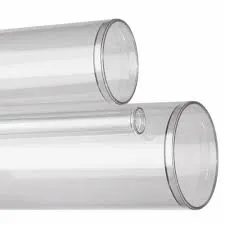Tet . 14, 2024 06:06 Back to list
Durable and Versatile HDPE Sheets for Various Applications and Industries
Understanding HDPE Plates Versatility and Applications
High-Density Polyethylene (HDPE) is a type of thermoplastic polymer that is known for its high strength-to-density ratio. Among the various forms in which HDPE is available, HDPE plates have emerged as a popular choice across numerous industries due to their exceptional properties and versatility. This article delves into the characteristics, advantages, and applications of HDPE plates, emphasizing why they are a preferred material in many settings.
Characteristics of HDPE Plates
HDPE plates are manufactured using a process that involves melting the polymer and then forming it into sheets of varying thicknesses. The resulting plates exhibit several key characteristics
1. Durability HDPE is resistant to impact, making it ideal for applications where durability is crucial. It can withstand physical stress and harsh environmental conditions without breaking down.
2. Chemical Resistance One of the standout features of HDPE is its resistance to a wide range of chemicals, including acids, bases, and solvents. This property makes HDPE plates suitable for use in laboratories, chemical processing plants, and packaging for hazardous materials.
3. Low Moisture Absorption HDPE has very low moisture absorption rates, which means that it does not swell or degrade when exposed to water. This characteristic is beneficial in applications where moisture is a concern, such as in outdoor settings or marine environments.
4. UV Resistance Although HDPE can degrade under prolonged exposure to UV light, certain additives can enhance its UV resistance. This property allows HDPE plates to be used effectively in outdoor applications.
5. Easy to Fabricate HDPE plates can be easily cut, drilled, and welded, facilitating their use in a variety of applications. This adaptability allows manufacturers and builders to customize the plates to suit specific needs.
Advantages of HDPE Plates
The use of HDPE plates provides a number of advantages, making them an attractive option for various sectors
- Lightweight Compared to other materials like metals or wood, HDPE is lightweight, which reduces transportation costs and makes installation easier.
hdpe plate

- Cost-Effective HDPE plates offer an excellent balance of performance and price. Their durability and low maintenance requirements lead to long-term savings.
- Environmentally Friendly HDPE is recyclable, contributing to sustainability efforts. Many manufacturers are now producing HDPE from recycled materials, further reducing the environmental impact.
- Smooth Surface The smooth surface of HDPE plates is easy to clean and maintain, making them suitable for use in sanitary environments such as food processing.
Applications of HDPE Plates
The versatility of HDPE plates has led to their use in a myriad of applications
1. Construction HDPE plates are widely used as building materials, particularly in construction projects that require lightweight, strong, and chemical-resistant components. They can serve as barriers, liners, or even as formwork for concrete.
2. Food Industry Given their safe, non-toxic nature and ease of cleaning, HDPE plates are commonly used in food processing and packaging. They are ideal for cutting boards, trays, and storage containers.
3. Marine Applications The water-resistant properties of HDPE make it an ideal choice for marine applications, such as dock components, fenders, and buoys.
4. Transportation HDPE plates are used in the transportation industry, particularly for manufacturing pallets, containers, and other equipment that require durability and resistance to harsh environments.
5. Agriculture In agriculture, HDPE plates can be used for creating storage facilities, feeding troughs, and water reservoirs, benefiting from their resistance to chemicals and environmental factors.
Conclusion
HDPE plates offer a unique combination of durability, versatility, and cost-effectiveness that makes them an ideal choice for various sectors. Their ability to withstand harsh conditions while remaining lightweight and resistant to chemicals makes them invaluable in applications ranging from construction to food processing and beyond. As industries continue to prioritize sustainability and efficiency, the demand for HDPE plates is likely to grow, affirming their role as a cornerstone material in modern manufacturing and construction practices.
-
Durable PP Rigid Sheet: Lightweight, Chemical Resistant Solutions
NewsAug.21,2025
-
PVC Grey Sheet for Extraction: Chemical Resistant & Durable
NewsAug.19,2025
-
Durable PVC Pipe Fittings for Plumbing & Irrigation Needs
NewsAug.18,2025
-
HDPE Steel Belt Reinforced Spiral Corrugated Pipe | High Strength
NewsAug.17,2025
-
HDPE Pipe Fittings: Durable, Leak-Proof Solutions
NewsAug.16,2025
-
Premium CPVC Sheet: High-Temp & Chemical Resistant Solutions
NewsAug.15,2025

